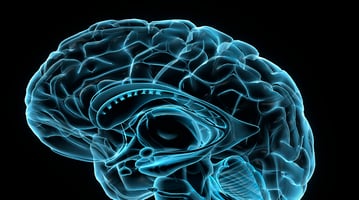Parent-Child Psychotherapy Leads to Improvements in Young Children With Depression
 |
“The study provides very promising evidence that an early and brief psychotherapeutic intervention that focuses on the parent-child relationship and on enhancing emotion development may be a powerful and low-risk approach to the treatment of depression,” lead author Joan L. Luby, M.D., of Washington University School of Medicine in St. Louis said in a press release.
In standard parent-child interaction therapy (PCIT), a therapist first educates parents on ways to successfully interact with their child and then coaches parents as they practice these techniques with their child in an office setting. Previous studies show that PCIT is an effective way to treat disruptive behavior disorders in young children. Luby and colleagues wanted to know if adapting PCIT to focus on enhancing a child’s emotional competence and emotion regulation could reduce symptoms of depression in very young children with major depressive disorder.
Children aged 3 to 6 who met criteria for early childhood depression and their parents were randomly assigned to Parent Child Interaction Therapy–Emotion Development (PCIT-ED, n=114) or a waitlist group (n=115). In addition to depression, some of the children in the study met criteria for comorbid anxiety, attention-deficit/hyperactivity disorder, and/or oppositional defiant disorder at baseline. After the parent-child PCIT-ED pairs completed 12 PCIT sessions, they received training during which parents were taught how to validate their child’s emotions and help the child regulate these emotions. The researchers interviewed children and parents at the beginning and end of the 18-week study to assess the children’s psychiatric symptoms, ability to regulate emotions, and level of impairment and functioning. They also asked parents about how they coped with their child’s negative emotions and their own levels of stress and depression.
Compared with those in the waitlist group, children in the PCIT-ED group were found to have lower rates of depression, lower depression severity, and lower impairment at the end of the study. In addition, rates of comorbid disorders at trial completion, including anxiety disorders and oppositional defiant disorder, were significantly lower in the PCIT-ED group.
The therapy also appeared to have positive effects on the parents of the children with depression, Luby and colleagues reported. “Parents who received the active treatment displayed more emotionally focused parenting techniques and reported marked reductions in stress and a greater sense of positive responsiveness from their child. Also notable was that the treatment resulted in significant reductions in parental depression, even though this was not a direct target of treatment,” they wrote.
“The study findings suggest that early intervention for depression may be a window of opportunity to modify emotional functioning, utilizing the powerful influence of the parent-child relationship during this relatively neuroplastic developmental period to remediate depressive symptoms,” the authors concluded. “Given that depression is a chronic and relapsing disorder, these findings on an early, low-cost, low-risk psychotherapeutic intervention suggest that early identification and treatment of depressive disorders should become a public health priority.”
(Image: iStock/shapecharge)






